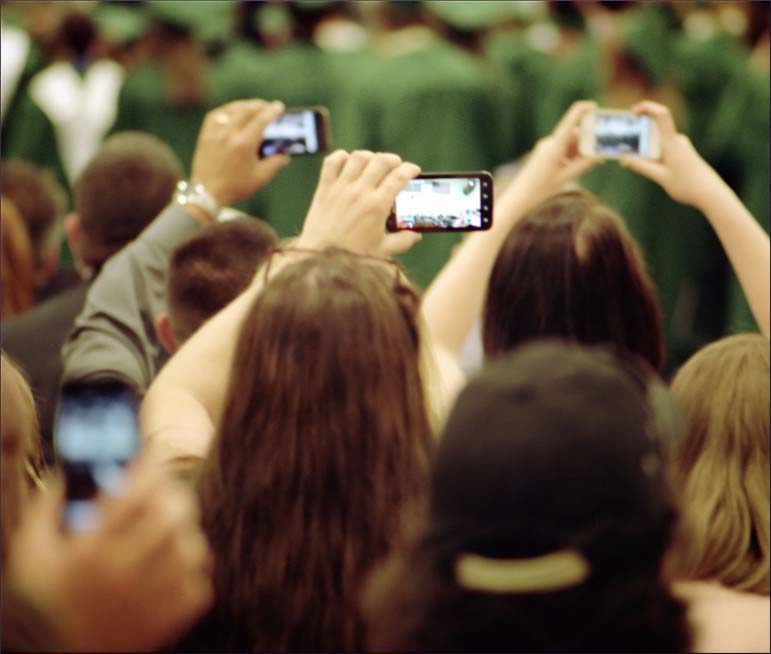
Several international and local organizations say provisions in Qatar’s newly ratified cybercrime law are open to abuse by authorities and could violate parts of the country’s constitution that protect civil liberties.
Earlier this week, Qatar’s Emir approved the new legislation, which outlines penalties for hacking into government networks, posting child pornography and conducting electronic fraud, among other crimes.
It also contains provisions on so-called “content crimes” that make it illegal to publish “false news” and content that violates the country’s “social values” or “general order.” These terms are not defined, making it unclear what content would land local journalists and social media users in trouble.
A spokesperson for human rights organization Amnesty International called the new law “a major setback for freedom of expression in Qatar.”
“It contains broad and vaguely-worded provisions that fly in the face of international standards,” said Said Boumedouha, the deputy director of Amnesty International’s Middle East and North Africa Programme, in a statement released today.
Boumedouha continued:
“They effectively grant the government extensive powers to punish anyone who posts or shares content that officials consider harmful to Qatar’s ‘social values’ or national interests. There is a real danger that legitimate, peaceful expression could be seriously undermined by this new law by facilitating arbitrary crackdown on peaceful dissent.”

The US-based Committee to Protect Journalists (CPJ) went further, calling on Qatar’s government to abolish parts of the law that infringe on media freedoms.
In a statement, CPJ noted that legislation had been signed into law less than a year after the organization received assurances from Prime Minister Abdullah bin Nasser bin Khalifa Al-Thani that the bill was consistent with clauses in Qatar’s Constitution that protect freedom of expression and opinion.
But that does not appear to be the case, CPJ said:
“This law is ostensibly to stop cybercrime, but at least two articles will severely restrict freedom of expression, which is not a crime,” said Sherif Mansour, CPJ Middle East and North Africa Coordinator.
Local reaction
The Doha Center for Media Freedom has also weighed in, although it did not condemn any parts of the law.
It addition to reiterating its argument that cybercrime issues should be kept separate from freedom of expression online, the local advocacy organization highlighted a “lack of clarity” in the law that it said “could lead to confusion and abuse.”
It added that there needs to be more discussion on how the legislation will be enforced, so residents know how to avoid violating the law. The center also said it will work to ensure that the regulations are not used to infringe upon constitutionally guaranteed liberties such as freedom of opinion and expression.
Meanwhile, local residents reacted to the news with confusion and fear that their words were being closely monitored:
Does the new cyber law thing in #Qatar mean we can't tweet pics of idiot drivers and bad parking? @dohanews
— أمينة* *Amina (@LFC_AMINA) September 17, 2014
https://twitter.com/pussykly/status/511852510320275456
The new "cybercrime laws" are pretty worry-some, with very harsh penalties. Jail + hefty fines. Read it on @dohanews http://t.co/uqD8sOamXI
— Shiva Singh (@shivasingh) September 16, 2014
‘False news’ of the world
Qatar is not the only country that’s dabbled in laws that mandate truthful reporting.
In 2008, the World Bank argued that there is no need for blanket bans on publishing incorrect statements, which it said exerts a chilling effect on freedom of expression.

Instead, the World Bank said restrictions and regulations should be placed on the harm that may result from false statements, such as defamation and the risk of public disorder.
It noted that several countries, including Zimbabwe, Uganda and Canada, have struck down legislation in recent decades against spreading false news. While the Canadian law had been used in an attempt to prosecute a well-known Holocaust denier, “false news” laws in other countries appear primarily targeted at journalists.
In Uganda, for example, charges were laid in 1997 against journalists at a newspaper that published a story alleging officials in the Congo had given gold to the government of Uganda as payment for its “services rendered” during the former country’s struggle against a military dictator.
In striking down the law in 2004, the Ugandan Supreme Court said, according to the World Bank:
“(T)he right to freedom of expression extends to holding, receiving and imparting all forms of opinions, ideas and information. It is not confined to categories, such as correct opinions, sound ideas or truthful information …
(A) person’s expression or statement is not precluded from the constitutional protection simply because it is thought by another or others to be false, erroneous, controversial or unpleasant … Indeed, the protection is most relevant and required where a person’s views are opposed or objected to by society or any part thereof, as ‘false’ or ‘wrong.’”
However, false news provisions appear to still be on the books in other African countries.
Recent reports have said journalists in Zambia were sentenced to three years in jail for publishing statements alleging that the ruling party had signed an arrangement for the militia in Sudan to train members of the party’s youth wing.
Meanwhile, a newspaper editor in Senegal was convicted of similar crimes for carrying a story in August saying that Ebola cases had been reported in the west African country.

Closer to home, charges against three Al Jazeera journalists convicted in Egypt this summer included allegations of spreading false news.
“False news” charges have also been levied against social media activists in the Gulf, where newspapers tend to practice self-censorship, writes Matt J. Duffy – a visiting assistant professor at Berry College – in a recent paper on Arab media regulations.
He stated that an individual was arrested in the UAE for tweeting details about a mass sedition trial, such as how the defendants complained that they were not allowed to meet with their lawyers or hear any of the prosecutors’ case against them in advance.
Elsewhere, a human rights representative was arrested in Bahrain for taking a picture of an injured protester in late 2012. Prosecutors, Duffy writes, said the photo erroneously implied that security forces caused the injury and that the image resulted in “protests and acts of sabotage that disrupted security and order.”
In his review, Duffy concluded that such provisions are inherently problematic.
“While outlawing ‘false news’ may seem like a good policy, in practice such laws are regularly used to quash reporting unfavorable to government officials. Truth can be subjective, so media regulations should encourage as much dissemination as possible to allow for the best obtainable version of the truth to emerge.”
Are you concerned that Qatar’s new law will be used against journalists and social media fans? Thoughts?







